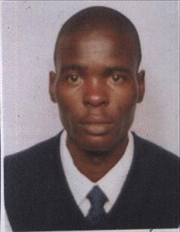Tutor HuntResources Accounting Resources
How To Be Come A Better Teacher
Teaching and learning are multi-faceted phenomena and that’s how we should be thinking about them, right from the start.
Date : 30/03/2016
Author Information

Uploaded by : Jared
Uploaded on : 30/03/2016
Subject : Accounting
A few months ago a colleague asked me to recommend a book for his new department reading group. I rattled off the names of several, but then wondered if a packet of articles might not be a better option. When I started identifying articles one by one, it came to my mind that what-to-read dilemma for new and not-so-new department goes beyond the articles themselves. It is more about the categories of work on teaching and learning rather than individual pieces.
Teaching and learning are multi-faceted phenomena and that s how we should be thinking about them, right from the start. Books that are written by beginning teachers, in fact lots of teaching books focus on techniques. Yes, new (and/or old) teachers need techniques, but when that s the main focus, it tends to narrow the thinking and trivialize the complexities.In my opinion, the literature on teaching and learning is too diverse of its finest features. It can do a good job of shaping this broader thinking if it s sampled across disciplines, topics, and categories.
I ve been trying to come up with a set of categories, not one that captures all the kinds of scholarship but rather one that is reflective of how those learning to teach ought to begin and proceed. So here is a set of categories to get us started and a couple of sample articles for each. I hope you will suggest other categories and examples that have helped you over the years, and feel encouraged to think about your pedagogical reading plans for the year ahead. How broadly have you been reading?
Learning to Teach at the Beginning and Beyond (with special respect for learning from mistakes)
More learning possibly the most painful learning happens early in the beginning (Collins), but learning to teach should be a career-long endeavor. Usually it involves change that grows out of new and evolving thinking about teaching and learning (Gonzalez).
Collins, H. On Becoming a Teacher. Teaching Professor, May 2009, p. 3.
Challenging What s Accepted
We teach as we were taught, or as others in our department teach, or as those
who taught the course before us did. Learning from others is very great, but
not if it is a passive acceptance that prevents us from challenging assumptions
(according to Spence), questioning the unquestioned (Tanner), or pursuing the
rationale on which a policy or practice rests (according to Singham). Reading
in this category may or may not change our minds, but doing so challenges us to
think and therein lies its value.
This resource was uploaded by: Jared
